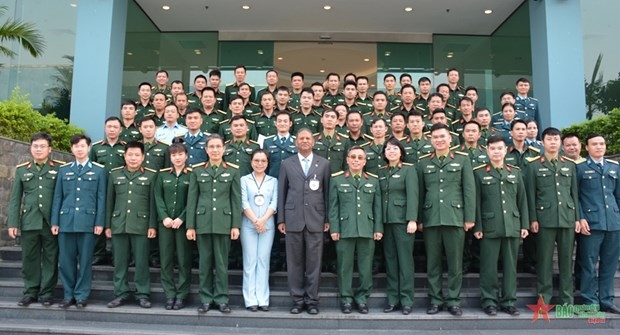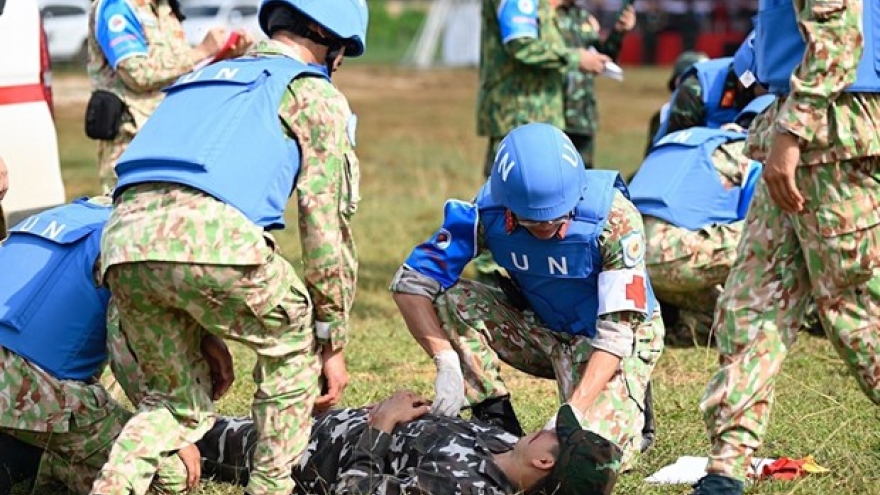Training course on int'l humanitarian law for Vietnamese peacekeepers opens
The Vietnam Department of Peacekeeping Operations on November 27 coordinated with agencies of the Ministry of National Defence and the International Committee of the Red Cross (ICRC) to organise a training course on the International Humanitarian Law for officers and personnel who are expected to join Vietnam’s Level-2 Field Hospital Rotation 6 and Engineering Unit Rotation 3.

A total of 156 trainees took part in the four-day training course which provides them with basic and essential knowledge about the International Humanitarian Law, conflict environments, those who are protected under the law, and kinds of violations.
This is the first training course for peacekeepers expected to participate in the Level-2 Field Hospital Rotation 6 and Engineer Unit Rotation 3 before they take UN peacekeeping missions in South Sudan and Abyei.
Speaking at the opening ceremony, Deputy Director of the Vietnam Department of Peacekeeping Operations Colonel Nguyen Nhu Canh emphasised that understanding the conflict environment and international principles of ensuring humanitarian and human rights will help Vietnamese peacekeepers to be well prepared for their jobs.
The training course also contributes to consolidating and strengthening cooperation in the field of United Nations peacekeeping between Vietnam and the ICRC, he said.
Lloyd Gillett, a senior expert on the armed forces from ICRC Bangkok (Thailand), said that during the training process, trainees also learn about the law on military operations, the application of the International Humanitarian Law in peace support activities; commander's responsibilities as well as content related to sexual violence in conflicts.
He said the International Humanitarian Law is not just a set of rules that need to be applied and followed, but also an effective tool for commanders at all levels to develop military plans.
Since 2015, the ICRC has supported the Vietnam Department of Peacekeeping Operations to organise similar training activities. Over the past time, the two sides have always strived to maintain important training activities even during the COVID-19 pandemic.


